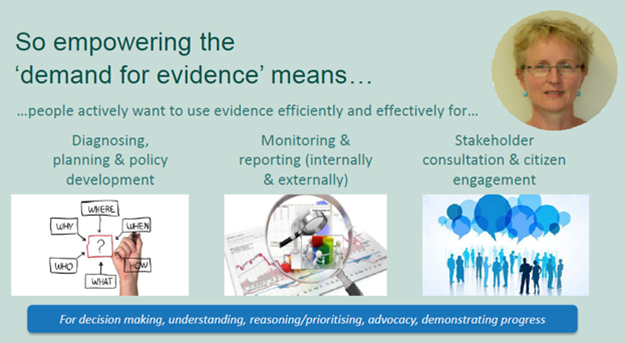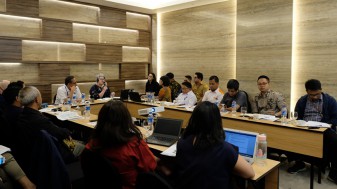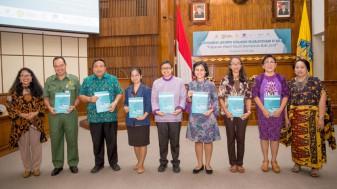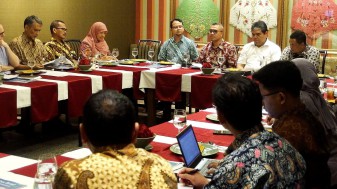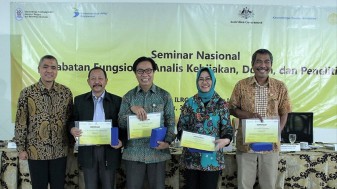(Hanya tersedia dalam Bahasa Inggris)
By Arnaldo Pellini
Louise Shaxson, Senior Research Fellow at the Research and Policy in Development programme at the Overseas Development Institute, was at the KSI office on 14 March for knowledge sharing about the challenges, opportunities and experiences in strengthening the capability of government organisations to demand and use evidence.
When we look at the processes and capabilities for demanding and using evidence in government departments, what matters is not only whether the demand for evidence exists, it is also about understanding the purpose or purposes for demanding evidence. She shared a framework that she developed with colleagues at the Department for Agriculture and Environment in South Africa that describes the ways evidence is incorporated into policy decisions.
Louise also noted in her presentation and the following discussion that, “when we are thinking about the demand for evidence and empowering the capability for demanding evidence, we have also to think about the different organisations that are involved in the processes of demanding and producing evidence: the Parliament, government departments, civil society, non-government organisations, researchers and think tanks”.
In the end, various factors determine and influence the degree of use of evidence in a government department: the culture of evidence demand and use, awareness about the need for different types of evidence at different stages of the policy cycle, understanding the incentives that can help the use of evidence, understanding the organisational barriers to more use of evidence.
Following Louise’s presentation, the attendants asked interesting questions which focused on how to develop (and fund) evidence strategies in government units, the role of the private sector in the production of evidence, what researchers should do to get the attention of policy makers, and the role and use of research evidence in policy making and its implementation.
During the discussion it was interesting to see how the researchers in the audience ended up agreeing that it is not their job to control the use of the evidence in policy decisions. However, they also agreed that “it is [their] job to work as smartly and effectively as possible to make sure that the right people get the right evidence at the right time”.
Louise noted that policy researchers must not be concerned that they cannot see their evidence being used. It is actually very difficult to isolate specific pieces of evidence in policy decisions. At the same time, researchers need to try to be strategic and try influencing the right people. If that is done, at some point someone is going to use the evidence to make a decision.
Download the presentation or contact Louise Shaxson directly.

